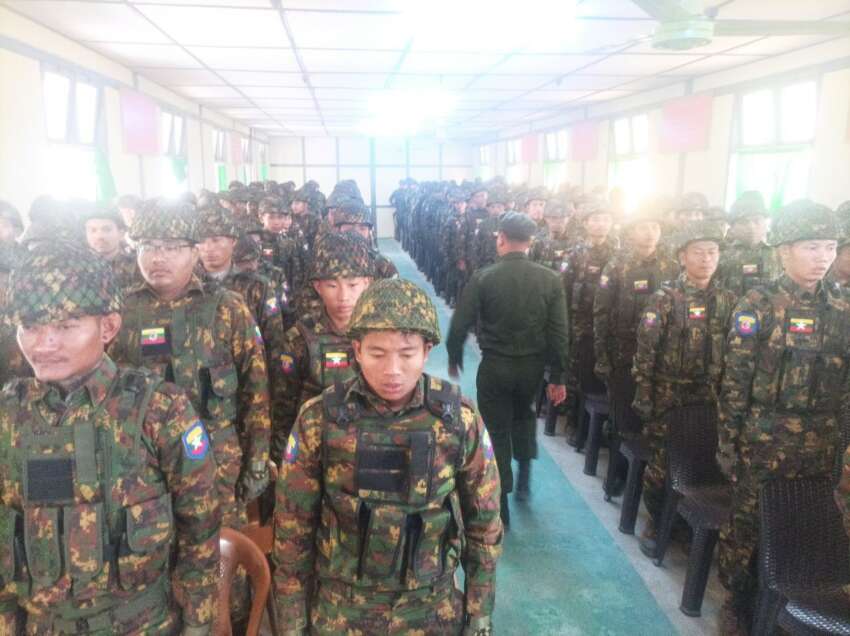
Intelligence sources in Sagaing City have reported that Pyu Saw Htee groups, organized by Military Division 33, are conducting various extortion activities with official military approval. These activities include collecting protection money, forced lottery ticket sales, military service fees, and human trafficking for military service substitutes. The groups are operating with full authorization from military authorities to carry out these intimidation and collection activities.
The Pyu Saw Htee groups are forcing business owners and shops to purchase government lottery tickets through coercion. They target establishments ranging from small betel nut shops to factories, warehouses, and workshops, demanding mandatory purchases ranging from 50,000 to 300,000 kyats worth of lottery tickets. According to local business owners, these groups sell the lottery tickets at inflated prices, making them a significant burden on businesses. The forced sales are conducted monthly, with threats of violence for non-compliance.
One of the most concerning activities is their involvement in military recruitment and human trafficking. The groups actively capture young people and either force them into military service or sell them as military service substitutes. The going rate for such transactions is approximately 10 million kyats per person. Local authorities, including police and administrative officials, are aware of these activities but have permitted them to continue. This has created a climate of fear among young people in Sagaing City, forcing many to flee or remain in hiding to avoid capture.
Furthermore, the Pyu Saw Htee groups have established a complex extortion network in collaboration with local police, collecting protection money from gambling dens, brothels, liquor shops, and lottery vendors. They also operate their own gambling operations under the guise of festivals to generate funds for their activities. These activities have significantly impacted the daily lives of Sagaing residents, creating an atmosphere of intimidation and economic hardship. The situation has become particularly difficult for young people, who face constant threats of being captured and forced into military service or sold as substitutes, effectively making it unsafe for them to remain in the city.



